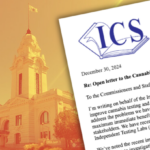
The Sunshine State’s medical marijuana statute is silent about whether employers must accommodate off-site or off-work use
A Hillsborough County judge has ruled in favor of a paramedic and medical marijuana patient who was suspended by the Hillsborough County Fire and Rescue Department in 2019 after testing positive for cannabis use.
Judge Melissa Polo ruled last week that Hillsborough County is prohibited from discriminating against and must provide accommodations to employees with valid medical marijuana cards who test positive for the drug — as long as there is no evidence the employee was using illegal substances at work, on county property, or in county vehicles, or reported to work under the influence.
She also ruled that the plaintiff, Angelo Giambrone, is entitled to back pay, compensatory damages, and attorney fees and costs associated with his case.
Florida’s medical marijuana statute does not require an employer to accommodate the medical use of marijuana in any workplace or any employee while working under the influence of marijuana but is silent about whether employers must accommodate off-site or off-work use of marijuana.
Officials with Hillsborough County issued a statement on Wednesday about the decision.
“Following the recent court ruling involving a former employee of Hillsborough County Fire Rescue and the use of medical marijuana, Hillsborough County is carefully evaluating possible next steps related to the case.”
Democratic lawmakers have filed bills in recent sessions to give employees who are medical marijuana patients legal protections at work, although they haven’t moved in the GOP-controlled Legislature.
“It’s finally what I think the people voted for in 2016 for medical marijuana coming to fruition,” said Tampa attorney Michael Minardi, who along with his co-counsel Larry Krutchik defended Giambrone in court. “We think this is obviously a correct verdict and hopefully allow marijuana patients to stop being discriminated against when they’re using medicine so they can be functional human beings in life again.”
Disability
In her written opinion, Judge Polo said the “undisputed facts” established that Giambrone suffered from anxiety and a sleep disorder that “significantly impacts his day-to-day life when unmedicated.”
She noted that the definition of disability in the Florida Civil Rights Act includes both physical and mental ailments; that the 2016 Florida Constitutional Amendment legalizing medical cannabis requires that “qualified” patients are allowed to use medical marijuana offsite; and that employers are required to make accommodations.
“Therefore, the Court finds that Plaintiff is entitled to protection under the Florida Civil Rights Act and the County violated the [sic] by not making an accommodation for Plaintiff to use his medical marijuana off-site.”
“He had anxiety, insomnia, and PTSD that affected his ability to live day to day without being medicated,” Minardi said.
“So, he was considered to be a disabled individual under the Florida Civil Rights Act and therefore employers are required to give those employees accommodations just like anybody else currently is for any other prescription medication or people who can’t stand on their feet too long, where they have to have a chair at work.” he continued.
“The only thing we’re asking for is they accept a positive medical marijuana test or medical marijuana card the same as they would any prescription medication.”
Polo noted in her opinion that that Hillsborough County Fire & Rescue acknowledged that there was no evidence Giambrone had used cannabis on work premises, before or during work hours; or that he had possessed cannabis on work premises or during work hours.
Random test
Giambrone had worked for Hillsborough County Fire & Rescue as a paramedic since 2008. On Feb. 26, 2019, he was asked to take a random drug test and tested positive for cannabis use on March 1, 2019. He showed his superiors his medical marijuana card, but the department was unmoved and placed him on administrative leave without pay that same day.
Giambrone’s positive urine test was reported to the Florida Department of Health, which conducted an investigation but dropped it for lack of probable cause.
He then filed a complaint on June 5, 2020, alleging violation of the Florida Civil Rights Act because he said that the county was required to accommodate him as disabled individual; that he was wrongfully terminated because the county refused to accept his state-issued medical marijuana card as justification for his positive test results; and that the county had failed to update its Drug Free Workplace Policy pursuant to the Florida Civil Rights Act.
Additionally, he alleged breach of contract for violation of the Drug Free Workplace Policy and Collective Bargaining Agreement.
Hillsborough County argued that Giambrone was not a disabled person “because he never requested an accommodation or self-reported his confidential medical information to his employer.”
Of the 38 states that have legalized medical cannabis, about half address anti-discrimination for medical cannabis patients. Significantly fewer require employers to carve out accommodations for these patients, according to the National Conference of State Legislatures.
This article was reprinted from the Florida Phoenix under Creative Commons license CC BY-NC-ND 4.0. You can read the original version here.























